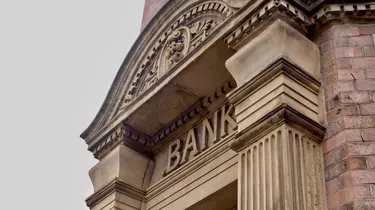
You owe $100 to a friend, but you haven't yet made it to the bank with that birthday check your Nana sent you. If you could just hand that check over to your friend, it would save time and effort. Some banks will allow you to sign a check over to someone else, but it may take longer and be more involved than simply depositing the check in your own account and paying the person with your own check or cash.
Tip
You can deposit a third-party check into your own bank account as long as you endorse it beneath the recipient’s name, but you may have to provide identification. Cashing it may be more difficult, especially if you don’t have enough in your account to cover the check if it bounces.
Video of the Day
Signing Over a Check
Checks aren't quite as common as they used to be, so you aren't alone if you're wondering, "Where to cash a personal check made out to me." The best course of action is to take that check to your own bank and either deposit it or cash it. You'll first need to sign it, also known as endorsing a check.
Video of the Day
If the check is in your name, but you want to sign it over to someone else, you do something called double endorsing a check. When the person named on the check is your spouse and he's named on the account, double endorsement usually isn't a problem. However, double endorsing can be an indicator of fraud, so many banks will take a harder look at it than if the check is in the name of the person on the account.
Cashing a Double-Endorsed Check
The problem with asking where to cash a personal check made out to me is that cashing checks is usually tougher than depositing them. Each bank has its own policies when it comes to double-endorsed checks, but at the very least you may be required to show identification. If you have enough money in your account to cover the check if it bounces, you will likely have an easier time than if the bank is risking a loss by accepting it.
If you plan on endorsing a check and giving it to someone else, the best course of action is to have that person ask her financial institution what's involved. In some cases, a financial institution will require both you and the account holder to show up in person and provide identification. You can weigh whether that's easier than depositing the money in your own account.
Cashing Checks Outside of Bank
If you don't have a bank account, someone signing over a check for you to cash it can be complicated. Most banks won't hand over cash in exchange for a check even if it's written to you. You can try taking it to the bank of the person who signed it over to you, but they may want to see their account holder in person before agreeing to cash it.
Another option for cashing after endorsing a check is to take it to a check-cashing service. They may have looser rules when it comes to double-endorsed checks, but you'll pay a price for that convenience. Some states put a cap on how much check-cashing services can charge, but in California, they can take up to 12 percent out of the value of the check.
Maiden Names and Children’s Checks
Often people ask where to cash a personal check made out to me when they're holding a check for a household member. If your check is in your maiden name, for instance, you may find you have to double endorse the check and show ID at the bank. Many banks will deposit the check without question, especially if your bank account was in your maiden name at some point, so it can't hurt to double endorse it and deposit it the normal way to see if it will go through.
If you're signing over a check written to one of your children, you may want to bring additional documentation with you in case the bank asks. The child's birth certificate and your own identification should suffice. You should have your child sign the check and write the word minor after it, then endorse the check with your own name.